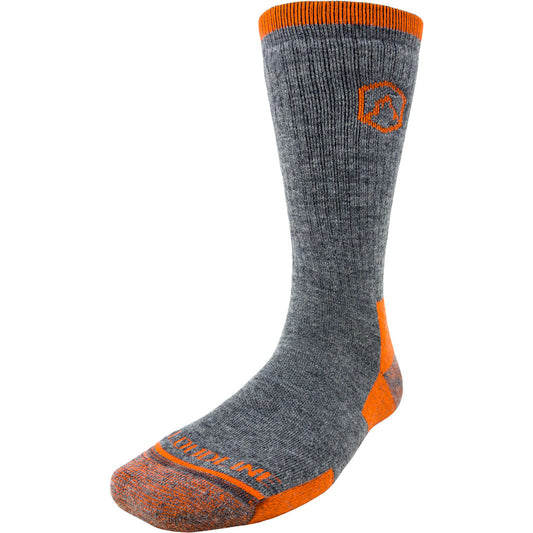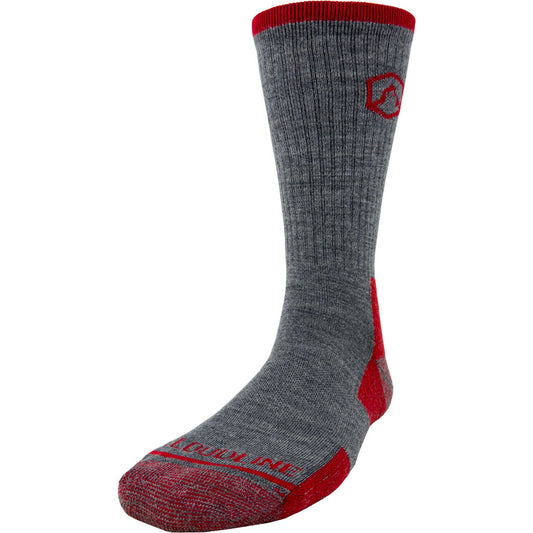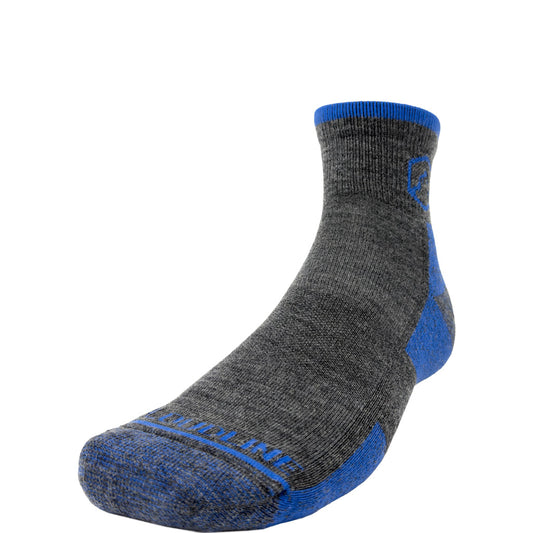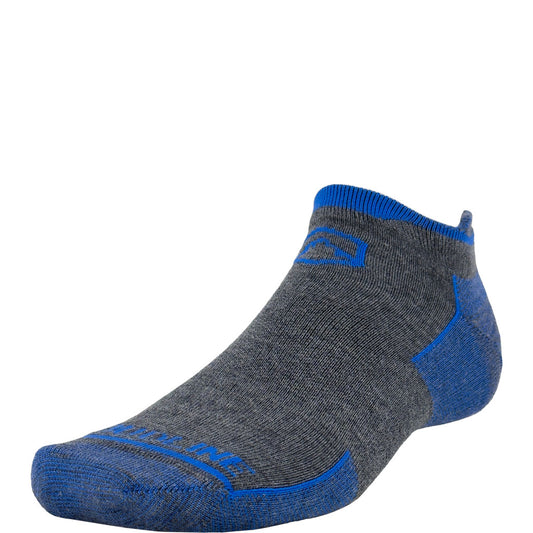
Whitney Thomas Interview: Embracing Freedom in the Outdoors

Paddler, climber, thru-hiker, backpacker.
Guide, former professor, explorer, and leader.
Though you probably do not know her name, Whitney Thomas is a true outdoorswoman.
When I set out to interview her about women in the outdoors, I had no idea how strikingly real and powerful her insights would be. Instead of lingering on the lack of quality, technical women’s gear (and how so much of it is pink) or on the gender gap in guiding, Whitney took time to talk over why she loves the outdoors, and what all it has offered her.
She focussed on personal growth and improvement, as well as the unique mental place of every single person. Instead of talking over uneven power structures, Whitney describes the beauty of open dialogue inspired by the outdoors and outdoor programs.
Ultimately, from these questions and answers, I gathered that wilderness offers freedom from anything that ranks you as higher or lower than others. The natural world pulls you into a state of awe so pure and powerful that ego and stereotypes fade.
Even in a world where gender, race, and background are so sensitive, Whitney talks about practical ways to navigate rough waters, and how to get out and find freedom and connection in the outdoors.
I hope you enjoy her thoughtful and beautifully expressed perspective as much as I do.

Q1: How were you introduced to exploring the outdoors? (Girl Scouts, family camping trips, etc.)
“I think the way I got into the outdoors was a love of being outside from when I was a young kid. We did go on family camping trips and I remember those very fondly. I’m laughing because I was in the girl scouts for a short time and it was probably one of the worst experiences of my life… the Girl Scouts actually made me undermine my love of the outdoors because I was an incredibly shy and introverted kid… I had and still have sometimes, trouble expressing my emotions and defining my feelings, so that leads to a lot of communication breakdown. So I was in this very unconfident, low self-esteem kind of place as a kid, and the outdoors were sort of like an escape from that.”
Whitney talks about deciding to change her major to Outdoor Leadership early in college, with the advice from the program, “Don’t tell your parents until after you’ve changed it.” She said, “I really had this romanticized idea of what the wilderness was, about what outdoor adventure was, and it was all like the good things that you think about the outdoors; like sitting around a fire at night eating slightly charred food that, you know, tastes awesome...and all these false ideas and impressions.”
She says switching her major forced her to push her boundaries a lot, and helped her to develop personally, including growing her voice. Whitney describes, “It started this slowly growing love of the outdoors, but not just the outdoors itself, but rather this way to grow as a person as a whole.”
Q2: When do you think you started transitioning into being a guide or going into a leadership role in the outdoors?
“Part of the answer to this question is that I have really high expectations for myself that don’t really apply to anyone else, it's just kind of my code, like ‘This is where I expect myself to be,’ so I would say I did not transition to have a strong voice of leadership until probably about 2012 and I mean that's after I had worked at North Greenville for three years, that's after I had been in guide service positions for 3 or 4 summers or longer.
The reason I would say that it took me to that point was because I was still unconfident in my voice and who I was in the outdoors… I wasn’t confident that I knew what I knew. I hadn’t reached a level of conscious competence yet.”
In 2012, Whitney said she stopped trying to become like other leaders or make her voice sound like theirs. She recognized the value of her own style and methods and found confidence in herself and her leadership style.
“Conscious competence” was a term I had never heard before, and she expands on that idea in the next question.

Q3: Do you think that the process of gaining confidence and developing a conscious competent level is something that everyone goes through? Do you think that being a woman impacted that process for you?
“I would say yes to both questions. On the question of conscious competence, that term is straight from one of the textbooks that I taught out of and I remember reading through this chart… it started off at basically ‘you don’t know what you’re doing but you sound like you do,’ like just enough to get you in trouble, and then it progressed up through these levels of, ‘OK, now you know kind of what you’re doing but you’re not sure about it,’ and then ‘You know what you’re doing and you’re confident in what you’re doing.” Eventually, it got to this unconscious competence, which is the highest level, where you know all of these things, and you don’t even have to think about knowing [them], you can just convey them naturally.”
Whitney says that one of the phrases she has been operating out of for the last few years is “Fake it til you make it,” meaning that being confident in what you are doing and remaining confident through the growth process will get you to the level you envision.
For Whitney, she says that being a female in the region where she is from influenced that. She explains it by describing trips to the hardware store. Before when she went to a hardware store looking for something specific, she was belittled and talked down to, even though she usually knew more than the employee “helping” her (for example, one time she was told that bungee cord is best for rappelling).
This power structure that she encountered impacted her confidence and courage to lead in her own voice.
She also describes a time when she had a very different experience. While living in another area of the US, Whitney went to the hardware store in search of a plug for a camper unit. She walked into the store with her research written down and told the employee exactly what she needed. This time, her experience was different than almost all the ones before. The employee pointed her to the right aisle, saying that it sounded like she knew a lot about what she was talking about.
She said, “ It was just so refreshing, to hear that change in the language, like, ‘hey, I think you know about this topic,’ and it was one of these huge ‘aha!’ moments in my mind because I thought, ‘Wow, I am actually being treated with respect right now, and I feel like they know that I know what I’m doing.’ And it was huge.”
Whitney says that she had similar experiences in gear shops, where male employees instantly assumed that she did not know what she needed or why. Walking into a gear shop and having a male employee not question her ability is still surprising and special to her.
For Whitney, she is finding refreshment by living in a new area, where she feels that women are treated with more trust and respect, and there are fewer barriers to becoming a strong female leader in the outdoors.
She emphasizes that both the positive and negative experiences have been true for her, but that other women might have different experiences.
“Basically, it all comes down to stereotypes… I would be interested to know what other women in the outdoors have experienced, too.”
Q4: How do you see power structures specifically impacting women in the outdoors?
“In terms of power structures in the outdoor field, I think that there is a lot more of a healthy push toward shared power [than in other areas].
Almost every place I’ve worked in the outdoors has been very attuned to feedback, so I see this really awesome back-and-forth dialogue in terms of the power structure. Even in the wilderness therapy structure, I am working in now, feedback from the clients is really valued and taken seriously.
I think that it is really beautiful to see that shared structure of power and to address someone else in a respectful way, and not feel threatened for doing that. I think that is what has drawn me to working in the outdoors so much, and also what has made me more confident in myself.”
Whitney’s advice for having positive experiences as a woman working in the outdoors is to research the culture of companies and organizations and avoid ones with negative reputations. She calls herself “picky” when it comes to groups she will work with.
Her experiences of being a valued asset and voice are not the only experiences that women have, and she encourages others to be thoughtful about where they choose to work.
She emphasized that there are definite areas for growth, which is important to bear in mind, but notes that it is likely one of the most positive workplaces for women because of the effort put into sharing power and having open dialogues.

Q5: Do you think that women’s leadership styles are valued at the same level as men’s in the outdoors?
“I think this is another question that I have only seen from a limited lens, and I don’t want to base everything I know from that lens, because I want to give people the benefit of the doubt.
I think I definitely have seen females in the outdoors and in general very devalued… in several instances, and it makes me pretty sad. The first time that I saw a female leader really upset was due to that nature, and it made me very upset too, to see them in that very dark spot and then to have to wrestle with ‘why?’ as a student. It can be incredibly hard, especially (in her experience) in the Southeast… I really think it comes down to this: Everybody is going to be different.
Everybody is coming from a place where they were raised differently, or where they’re trying to overcome some of the stereotypes they originally thought were relevant. I’ve been in that spot, too. I had some stereotypes that I slowly came to realize were just wrong, and I had to go back to the foundation and work my way through it again to try to weed out the stereotypes, and I’m still in the process of doing that.
It’s never just one thing, it’s not just gender: its race, its background, it’s the way you speak… you know, any time you work with people, it's messy. And I think I have to just embrace that and say it’s not always just one issue, its each individual person that I encounter is going to be in a different spot.
They might not be in a spot where they are able to value my voice yet, or they might be in a spot where they are really able to value my voice, and vice versa. I might be in a spot where I see someone through a lens that might not be ‘them,’ and I have to think about that and work through it and come to see them as a whole person.”
Q6: Is there anything you want to say or any advice you have for women passionate about spending time in the outdoors?
“Ummm… give me a call so we can go adventuring!”
At this point in our conversation, I wrote that I would go adventuring with Whitney at the drop of a hat. She then said, “I would definitely tell them to fake it until they make it, and to be intentional about the communities they find. I would tell them to find people who build them up, and not stop until they find those people, either, because they are definitely out there…
I think that building up confidence in yourself… it might just be getting out there, finding a meetup group to go paddling or a club in your area, taking a workshop course, whatever it is, there are so many directions you can go, and I think that is one of the great things about the outdoors is you can really dream pretty big about what is going to grow you the most and then pursue that.”
Lastly, Whitney ends with this piece of wisdom that she practices.
"I would say don’t be discouraged, too… even if you’re in a hard time, keep smiling, it’s a process of growth and development.”
To the women reading this, or other groups who have encountered condescension, distrust, or unwanted beta in the outdoors community, I hope that Whitney’s positive perspectives and careful words are uplifting.
There are problems in how women are viewed and treated when it comes to the outdoors. We should continue to push for equal treatment, and for causes that will help more women to get out into the wild.
Nature, in her own magnificence and liberating diversity, is exactly the place for us to discover freedom and growth.

What have your experiences been?
How do you find freedom or confidence in the wild?
Do you think that the outdoors are the perfect place to foster shared power?
Share your thoughts in the comments below.




